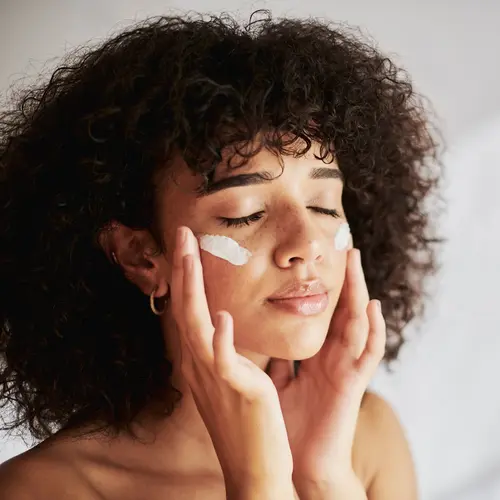Oily skin can be a real hassle. It can leave your face looking shiny and greasy, which can lead to self-confidence problems. You may also find that the extra oil clogs your pores and leads to acne.
Fortunately, you can manage oily skin and reduce your risk of acne without drastic measures. The key is picking products with ingredients that reduce oil but don’t leave your skin dry and lifeless. Read below to find out more about how you can take care of oily skin.
What Causes Oily Skin?
All skin produces sebum, a natural oil that helps protect and moisturize your skin. Some people find that their skin produces an excess of sebum. The extra oil makes the skin shiny. It can also block pores and make them look enlarged, or it can cause acne spots to form. Excess sebum production can have a variety of causes, including:
- Hormone fluctuations
- Stress
- Certain medications
- A family tendency toward oily skin
Be Gentle with Oily Skin
You may react to oily skin by trying to scrub away the excess sebum. That might make your face feel fresh and clean for a little while, but it also strips away the skin's natural moisture. Your body knows that the oil protects your skin. Your skin may respond by producing even more oil to replace what was lost. Instead, try gently rubbing your skin with a soft cloth to clear away oil without causing irritation.
Avoid Drying Ingredients
Using cleansers with alcohol in them might seem like a good idea, but experts advise against this. The alcohol will dry out your skin too much. You may find that your oil production gets worse as your skin tries to replace lost moisture. You might also notice dry or flaky patches on areas that are naturally less oily.
Try Salicylic Acid
Salicylic acid is an ingredient found in a lot of over-the-counter skincare products. It’s a beta-hydroxy acid that is effective at dissolving oil and other contaminants on your skin. Salicylic acid is gentle enough to use regularly without unnecessary drying.
In addition to cleaning away excess sebum, salicylic acid has anti-inflammatory properties that help calm acne breakouts. It can also prevent future breakouts. The dirt and oil in your pores might lead to blackheads and whiteheads. Salicylic acid can clear out debris that collects in your pores.
Look for Products with Retinoids
Products containing retinoids can help reduce the amount of oil on your skin. Retinoids are a form of vitamin A, and they’re known for their skin-brightening and anti-aging effects. Retinoids thicken the outermost layers of skin, reducing the appearance of fine lines and wrinkles. At the same time, they can slow down oil production and make skin less shiny.
Exfoliate with Glycolic Acid
Glycolic acid is an alpha hydroxy acid that works as a chemical exfoliant. The acid loosens dead skin cells so you can wash them away and reveal brighter skin. In addition, glycolic acid clears away excess oil that has built up on your skin, making it less oily-looking overall. Just don’t overdo it with glycolic acid or any exfoliating treatment. Overuse could irritate skin or trigger more oil production.
Moisturize with Hyaluronic Acid and Niacinamide
It might seem counterintuitive to add moisture to oily skin, but experts recommend you do so anyway. A light, non-comedogenic moisturizer will balance out any dryness from cleansing your skin. This can slow your skin’s tendency to over-produce sebum.
Look for moisturizers that contain hyaluronic acid, which refreshes and plumps the skin. Also, look for niacinamide, which absorbs oil on the surface of your skin. It also has soothing effects, so it helps calm inflammation from acne.
Use Blotting Papers for Touch-Ups
If you find that your face still gets shiny during the day, you can touch up your skin with blotting papers. These tissue-like papers soak up oil that builds up on your face. You simply pat your skin with the papers to remove oil and then discard them.
Talk to Your Dermatologist
If you can’t get your oily skin under control with over-the-counter products, you can ask your doctor for other options. There are prescription-strength medications that can be helpful. Treretonin is a clinical strength retinoid cream that may help with oily skin.
If you have severe acne as well as oily skin, you may be a candidate for a medication like isotretonin that can reduce symptoms of acne. Some people find that hormonal birth control pills reduce oily skin, as well.
Your doctor might also suggest professional exfoliation such as a chemical peel or microdermabrasion. These minimally invasive procedures clear away more oil, dead skin cells, and debris than at-home exfoliation. They usually take less than an hour in the doctor’s office and have very few side effects. Some people report slight redness or tenderness after the treatment.


